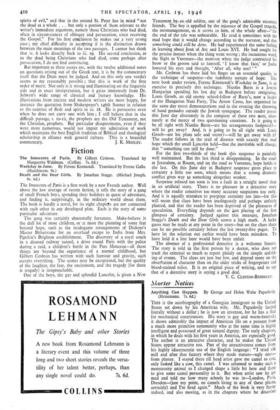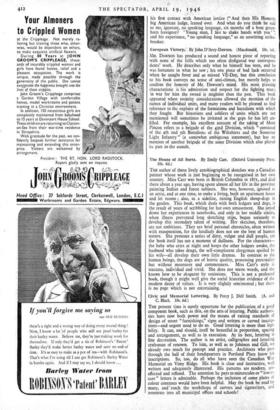Shorter Notices
Anything Can Happen. By George and Helen Waite Papashvily. (Heinemann. 7s. 6d.)
Tins is the autobiography of a Georgian immigrant to the United States set down by his American wife. Mr. Papashvily landed literally without a dollar ; he is now an inventor, for he has a flair for mechanical contrivances. His story is gay and warm-hearted; it shows admirably the impact of American life on a peasant from a much more primitive community who at the same time is highly intelligent and possessed of great natural dignity. The early chapters, in which he deals with his first years in America, are especially good. The author is an attractive character, and he makes the United States appear attractive too. Part of the attractiveness comes from his highly idiosyncratic use of the English language: " I tried silk mill and after that factory where they made statues—ugly ones— from plaster. I stayed there till head artist gave me camel to cast, only looked like a cow, this camel. I was ashamed to make such a monstrosity animal io I changed shape a little bit here and there to give some camel -personality to it. But when artist saw he got mad and told me how many schools he was in—London, Paris, Dresden—Oust my point, no camels living in any of these places, certainly) and I'm fired again." Much of the hook is very funnY indeed, and also moving, as in the chapters where he descrihei
his first contact with American justice (" And then His Honesty. big American judge, leaned over. And what do you think he said to me, ignorant, no speaking language, six months off a boat green- horn foreigner? ' Young man, I like to shake hands with you' and his experience, " no speaking language," as an unwitting strike- breaker.































 Previous page
Previous page